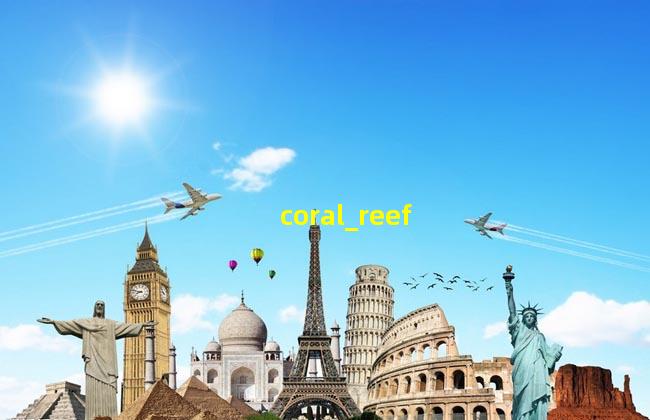珊瑚礁英文原版阅读(珊瑚礁的英语是什么)
1、珊瑚礁英文原版阅读
Exploring Coral Reefs: An English Reading Adventure

Coral reefs are not only beautiful, but they also support a rich and diverse ecosystem. If you are interested in marine biology and want to learn more about these fascinating underwater worlds, discovering English reading materials about coral reefs can be a fun and educational adventure. Let's dive in!
When you read about coral reefs in English, you can explore a wide range of topics. Start with the basics: learn about the formation of coral reefs and the different types of coral. Discover how these fragile ecosystems play a crucial role in protecting coastlines from erosion and providing a habitat for numerous marine species.
As you delve deeper into your reading, you will come across the incredible biodiversity found within coral reefs. From colorful fish and intricate coral designs to sea turtles and graceful manta rays, there is a wealth of unique and fascinating organisms to discover. Reading about their behavior, feeding habits, and survival strategies will truly immerse you into their enchanting world.
English reading materials about coral reefs also shed light on the challenges faced by these delicate ecosystems. Discover the impact of climate change, coral bleaching, and human activities on reef health. Learn about conservation efforts, scientific research, and how individuals can contribute to protecting and preserving these vital habitats.
To enhance your reading experience, you can also explore English-language documentaries and documentaries with subtitles about coral reefs. Seeing the underwater world come to life through film adds another layer of understanding and appreciation for these incredible environments.
So, whether you are a seasoned diver, a passionate environmentalist, or simply curious about the wonders of the ocean, exploring English reading materials about coral reefs will take you on a captivating journey. Begin your adventure today and dive into the mesmerizing world of coral reefs.
2、珊瑚礁的英语是什么
What is the English name for coral reefs?
Coral reefs, known as "珊瑚礁" in Chinese, are one of the most fascinating natural wonders found in the world's oceans. These colorful and diverse underwater ecosystems provide a home for countless marine species and play a crucial role in maintaining the balance of our planet's biodiversity.
In English, "珊瑚礁" is translated as "coral reefs." The term "coral" refers to the marine invertebrate animals that build intricate structures, while "reefs" are rock-like formations formed by the accumulated skeletons of corals over time. Coral reefs are typically found in clear and shallow tropical waters, where they thrive in warm temperatures and depend on sunlight for their survival.

These mesmerizing ecosystems are not only visually stunning but also incredibly important for both marine life and humans. Coral reefs provide habitats for about 25% of all marine species, making them one of the most biodiverse ecosystems on the planet. They act as nurseries for fish, crustaceans, and other marine organisms, supporting the food chains that sustain various oceanic ecosystems.
Furthermore, coral reefs serve as natural barriers against coastal erosion and storms. The complex structure of the reefs helps absorb wave energy and protect the shoreline from the damaging effects of strong currents and tides. They also contribute to carbon sequestration, helping to mitigate climate change by removing carbon dioxide from the atmosphere.
Despite their ecological significance, coral reefs are currently facing numerous threats. Climate change, ocean acidification, overfishing, and pollution are causing widespread coral bleaching and die-offs. It is crucial for us to raise awareness about the importance of protecting and conserving these fragile ecosystems for the future generations to enjoy and benefit from.
In conclusion, the English name for "珊瑚礁" is "coral reefs." These intricate and vibrant underwater habitats are not only beautiful but also vital for marine life and the overall health of our planet. Let's work together to preserve and safeguard these precious treasures of the ocean.
3、珊瑚礁英语阅读理解
探秘神奇的珊瑚礁世界

作为旅游达人,我曾有幸游览过很多美丽的地方,但在我心中,珊瑚礁的魅力是无与伦比的。珊瑚礁是海洋中的一个奇迹,它们是由微生物和珊瑚多样的颜色和形状构成的生物礁。它们位于热带地区,通常与碧蓝的海水和绚丽的鱼群一起构成一幅绝美的画面。
珊瑚礁的生态系统
珊瑚礁不仅仅是一种美丽的景观,它们还构成了一个复杂而独特的生态系统。珊瑚养分主要来自于珊瑚的共生藻类,这些藻类通过光合作用提供能量给珊瑚。同时,珊瑚礁也提供了栖息地给许多鱼类、海洋植物以及其他海洋生物。它们共同构成了一个生机勃勃的海底世界。
珊瑚礁的威胁
然而,令人担忧的是,珊瑚礁正面临着许多威胁。气候变化导致海水温度升高,这会对珊瑚造成伤害并导致珊瑚白化现象。白化对珊瑚来说是致命的,因为它们失去了与共生藻类的关系,无法获得足够的养分。此外,过度捕捞、水污染和旅游业的使用也对珊瑚礁造成了不可逆转的破坏。
保护珊瑚礁的重要性
保护珊瑚礁是我们每个人的责任。我们应该减少使用化学物质并妥善处理废水,以减少水污染。同时,限制过度捕捞并加强海洋保护区的管理也是至关重要的。此外,每个游客都应该遵守珊瑚礁保护规定,不触碰或破坏珊瑚礁。只有共同努力,我们才能保护珊瑚礁并让它们继续为我们提供美丽的风景和宝贵的生态系统。
珊瑚礁是一片神奇的世界,它们不仅是自然美的象征,也是海洋生态系统中的重要组成部分。让我们一起保护珊瑚礁,让它们永远绽放着绚丽多彩的光芒。
4、珊瑚礁用英文怎么说
Exploring the Beauty of Coral Reefs
Coral reefs are some of the most breathtaking underwater ecosystems on our planet. Known for their vibrant colors and diverse marine life, they are often referred to as "rainforests of the sea."

These magnificent structures are home to a wide variety of species, including colorful fish, mesmerizing sea turtles, and even majestic sharks. Their intricate formations provide shelter, protection, and feeding grounds for countless marine organisms.
In English, we call these magnificent underwater structures "coral reefs." The term "coral" refers to the small animals called polyps that make up the reef, while "reef" describes the solid structure that is built from their calcium carbonate skeletons.
Coral reefs exist in shallow tropical waters, predominantly near the equator. They thrive in warm, clear seas with plenty of sunlight. As such, popular diving and snorkeling destinations such as the Great Barrier Reef in Australia and the Maldives' reefs offer tourists the chance to witness the beauty of these underwater wonders up close.
However, it is important to note that coral reefs are fragile and delicate ecosystems. They are facing numerous threats, including pollution, climate change, and destructive fishing practices. Human activities such as overfishing and improper waste disposal can lead to the destruction of these precious habitats.
Awareness and conservation efforts are crucial in preserving these priceless ecosystems for future generations. Supporting sustainable tourism practices and participating in coral reef restoration projects can make a difference in protecting these natural treasures.
So, if you have the opportunity to explore the captivating world of coral reefs, remember to do so responsibly and with utmost respect for the delicate balance of marine life. Let us appreciate and protect these underwater gems for years to come.

.jpg)
.jpg)
.jpg)
.jpg)
.jpg)
.jpg)